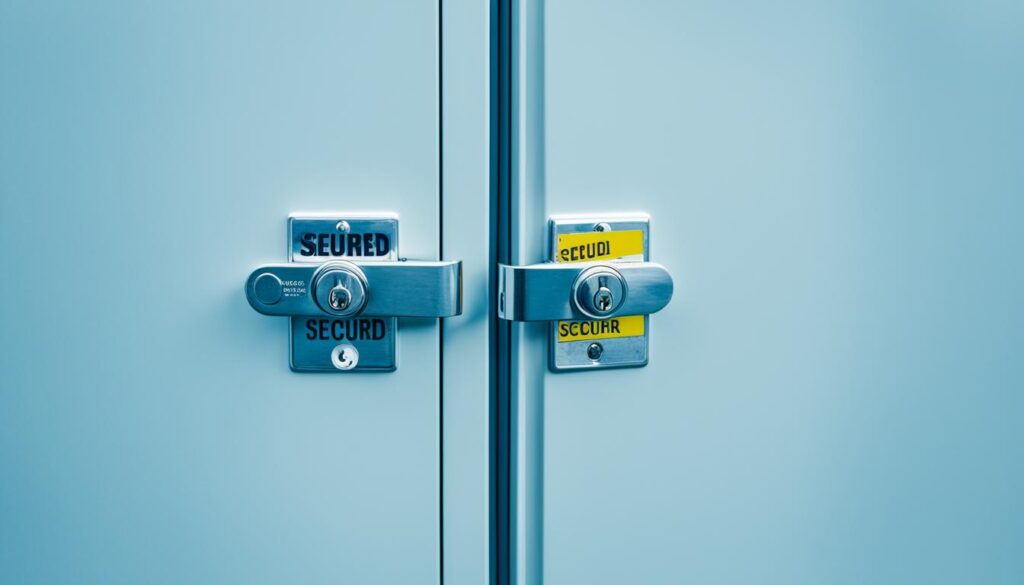Business Loans For Startups: Starting a business is both thrilling and comes with big financial hurdles. Many new businesses find it hard to get the money they need. Luckily, there are many types of loans to help cover these initial costs.
Forbes Advisor wrote an article about the best startup loans for 2024. They compared 15 lenders on different measures like credit score and how long you’ve been in business. These measures help identify the best loans for startups.
The article explores various loans available to new businesses. It includes term loans, SBA microloans, and others. Pros and cons of each type are discussed, along with tips for picking the right loan. They also mention some lenders that stand out, such as Taycor Financial and OnDeck, because of their good deals.
The article also talks about options besides loans, like crowdfunding and grants. This wide view helps new business owners find the best way to fund their ventures.
Key Takeaways: Business Loans For Startups
- Startup business loans can give new companies the boost they need, but they vary in requirements and terms.
- Lenders look at things like credit scores and business history to decide whether to lend money to startups.
- There are many loan types to consider, such as term loans and microloans.
- Startups can also turn to crowdfunding, grants, or family and friends for funds.
- It’s important to carefully research and compare loan options to find the best for your business.
Understanding Startup Business Loans
Startup business loans are key for aspiring entrepreneurs to start their ventures. These loans help new businesses get finance even if they lack a long business or credit history. This is perfect for those who can’t get help from traditional lenders.
Also Read : Secured Loan: What Are The Steps To Apply?
What Is a Startup Business Loan?
A startup business loan offers cash for a new venture’s opening steps. It helps new businesses up to two years old. Even if these businesses have not built up much creditworthiness yet, there’s still a chance to get a loan.
How Does a Startup Business Loan Work?
Startup business loans vary, from term loans to SBA loans and business credit cards. The kind of loan and what you need to get it changes. It depends on the lender, how much you want to borrow, and your business’s financial profile.
Startup owners can also look into other ways to get money. Things like crowdfunding or business grants can help with your finances too.
Also Read : Home Loan: What Are The Best Interest Rates Available?
Pros and Cons of Startup Business Loans

Advantages of Startup Business Loans
Startup business loans help kickstart your new venture with needed cash. They offer a way to get money that could be hard to find otherwise, like through personal loans or business credit cards. New businesses without much credit history or assets find this really useful. These loans also allow for payment plans that match your business’s cash flow.
Also Read : How Can I Prepare For The Medical School Entrance Exam?
Disadvantages of Startup Business Loans
However, these loans have their ups and downs. For one, being eligible can be tough for new startups. You often need a solid business plan, clear plans to make money, and either a good credit score or something to put up as collateral. The loans might also cost more in interest and require you to personally promise to pay the loan back, raising the stakes for you.
The process of applying for these loans is longer and more detailed than for other funding options. This can take up more of your time, which might be difficult if you’re trying to launch a business. It’s a hurdle some entrepreneurs might struggle with.
Also Read : What Are The Best Medical Services For Mental Health?
| Advantages | Disadvantages |
|---|---|
|
|
So, startup loans can be great for getting your business going, but they need careful consideration. Thinking about the good and bad will help you decide if they’re right for you. Talking to a specialist lender can give you the information needed to make a smart choice and get the funding you need to succeed.
Also Read : What Are The Future Trends In Medical Technology?
Types of Startup Business Loans

Startups looking for money have lots of loan types to pick from. Each loan has unique parts and things you must do to get it. Knowing these types can help business owners find the best loan for their needs. Let’s look at the most common startup loans:
Term Loans
Term loans give a startup a large amount of money at once. The startup pays this back over a set time, often with interest. They can be used to cover daily costs, buy gear, or start new projects. Paying back can take from one to five years. The loan size can be as small as $10,000 or over $500,000, it depends on the startup and the lender.
SBA Microloans
The U.S. Small Business Administration (SBA) gives microloans up to $50,000 to small businesses. These loans are for starting or growing a business. Getting an SBA microloan is a bit easier on the credit and collateral rules than a bank loan. That’s why they’re good for new businesses without much history or property.
Asset-Based Financing
Startups use what they have, like stuff they sell, money owed to them, or equipment, to get these loans. This helps if a startup doesn’t have a strong credit history or big assets. The lender looks mostly at the value of the things used as collateral.
Personal Loans
Early businesses might need to rely on personal loans. These come from banks, credit unions, or online lenders. They can be quick and easy to get but are not always the best deal on interest rates and how you pay back.
Business Credit Cards
For small expenses, inventory, or emergencies, business credit cards can be handy. They come with perks like cash back or no interest at the start. But they must be used carefully to avoid extra costs from interest. Make sure to pay on time.
By knowing these different loans, startup founders can find what’s best for them. It’s important to think about what each loan offers and what it asks for. This helps startups get the right financing to start and expand their businesses.
Requirements for Startup Business Loans
Getting a business loan for a startup is tough. Lenders have strict rules for such loans. Entrepreneurs need to have certain things ready when they apply for a startup loan.
- Strong Business Plan: You must show a detailed business plan. It should cover your startup‘s goals, target audience, financial forecasts, and ways to grow. This proves you’re serious and your small business is likely to succeed.
- Sufficient Collateral: To lower their risk, many lenders ask for collateral. This can be personal belongings, equipment, or property. Collateral boosts your chances of loan approval.
- Good Credit Score and Credit History: Lenders check your personal and business credit closely. They assess if you’re reliable based on your credit score and how you’ve handled credit in the past. A strong credit score and good credit report help you get a startup loan.
- Significant Time in Business: While some may consider very new startups, more often, lenders prefer those with at least a year of experience. This shows your new business is stable.
- Substantial Annual Revenue: Lenders usually want to see you make a certain amount each year. This assures them you can pay back the loan. The exact amount needed can differ based on the lender and loan kind.
While it’s hard to meet these demands, knowing and working on them can greatly improve your chances of getting the funding you need. This is vital for starting your business.
Secured vs. Unsecured Startup Business Loans

Starting a new business often means looking for funds. Entrepreneurs find securing startup costs small business startup traditional loans tough. Yet, there are lower credit two main types: secured and unsecured. Choosing between them is crucial for a business’s funding and small business startup growth.
Secured Startup Business Loans: Secured loans are easier to get. They use business assets as a guarantee. Lenders find them safe since they can sell assets to recover their money. Business owners need to offer something valuable, like real estate, to get these loans. They might have lower rates and better terms. But, if the business can’t small business grants pay, it might lose its collateral.
Unsecured Startup Business Loans: Unlike secured loans, unsecured ones don’t need collateral. They rely on the business’s and its owner’s good financial history. Getting them can be hard for new businesses without much financial proof. The good thing is loan program small business grants these loans don’t risk losing business assets. Even though they might come with higher rates and strict rules, they are good for strong credit scores and solid business plans.
| Secured Startup Business Loans | Unsecured Startup Business Loans |
|---|---|
| Require collateral, such as real estate, equipment, or inventory | Do not require any collateral |
| Typically have lower interest rates and more favorable terms | May have higher interest rates and stricter repayment terms |
| Lenders can recoup the loan by selling the collateral if the business fails to make payments | Lenders rely solely on the creditworthiness and financial strength of the business and its owners |
| Easier for startups to qualify for | More challenging for startups to obtain, especially those with limited credit history and financial track record |
| Business assets are at risk if the loan cannot be repaid | Business assets are not at risk |
Choosing the right loan is important for new businesses. Entrepreneurs must think loan application about each loan type’s pros and cons. Their decision should grow established business your business fit their business startup loan business’s needs type of business and how much risk they are willing get funding to take.
Tips for Comparing Startup Business Loans
When looking at startup business loans, you need to think about many things. This type of business ensures you pick the best one for your business. Here are some key tips to remember:
Consider Time in Business and Annual Revenue Requirements
Lenders might want to know how long your business has been running. They might also ask about your yearly revenue. Check these details business financing to see small business owner which lenders match small business owner where your startup is at.
Determine How to Receive Funds
Startup loans work in different ways. Some give you all the money at the start. Others small business owner repay the loan pay out bits of the loan as you reach certain goals or milestones. Knowing this is important for your cash flow and financial planning.
Consider Repayment Terms and Flexibility
Think about how you will pay back the loan. Look at the loan’s term, Interest rate, personal credit score and if there are any fees for personal credit paying early. Make sure the terms fit your money plans personal credit score and give you room to adjust as needed.
Look Out for Additional Fees
Startup loans might have fees besides interest. These fees could be for starting the personal credit score loan, applying for it, or keeping it up. Understand all the costs before you agree to the loan.
Evaluate Customer Support Options
It’s good to pick a lender with great customer service. They should help startups like yours well. This is crucial if you run into any problems or need advice during the loan process.
By looking into these areas, you’ll be better equipped to choose the right startup loan. Make sure it fits your business’s needs and plans for growth.
Also Read: From Debt To Delight: Your Journey Through Student Loan Repayment Choices
FAQs
Q: What are the best funding options for startups?
A: The best funding options for startups typically include small business loans, business lines of credit, and personal investments.
Q: How can I get a startup business loan with bad credit?
A: While it may be more challenging, you can still get a startup business loan with bad credit by exploring alternative lenders or securing a co-signer.
Q: What is the typical interest rate for small business loans?
A: The interest rate for small business loans can vary depending on the lender, your credit score, and the type of loan, but rates typically range from 4% to 30%.
Q: What is the loan term for business loans for startups?
A: The loan term for business loans for startups can range from a few months to several years, depending on the lender and the amount borrowed.
Q: How can a business loan help me grow my startup?
A: A business loan can help you grow your startup by providing the necessary funds to expand operations, hire additional staff, or invest in marketing and technology.
Q: What are the best startup business loans available for new businesses?
A: Some of the best startup business loans for new businesses include SBA loans, equipment loans, and business lines of credit.
Q: Is it possible to get a business loan without collateral?
A: Yes, it is possible to get an unsecured business loan without collateral, especially if you have a strong business credit score and history of successful operation.
